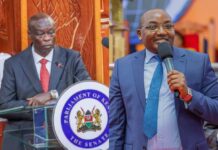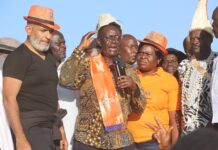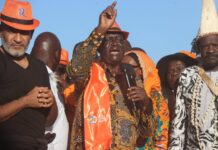The National Assembly has unanimously endorsed President William Ruto’s seven nominees to the Independent Electoral and Boundaries Commission (IEBC).
However, the nominees are currently barred from assuming office due to a High Court order, raising concerns about the country’s readiness for credible elections in 2027.
On May 29, a High Court issued a conservatory order following a petition by activists Boniface Mwangi and Kelvin Roy, challenging the transparency and constitutionality of the recruitment process.
This legal intervention has temporarily halted the gazettement and swearing-in of the new IEBC team, underscoring the persistent tug-of-war between judicial oversight and executive appointments in Kenya’s electoral landscape.
Robust Vetting Amid Political Tensions
The Justice and Legal Affairs Committee (JLAC), led by Tharaka MP George Murugara, conducted an extensive vetting process, considering public objections and scrutinizing each nominee’s qualifications.
Murugara emphasized that despite concerns about perceived political affiliations, the committee found each candidate to meet constitutional standards, citing their experience in law, conflict management, and public service.
While the committee’s process was praised for its transparency, critics and opposition figures accused some nominees of being subjected to politicization based on ethnicity or regional origins.
Majority Leader Kimani Ichung’wah condemned attacks on nominees, emphasizing the importance of respecting merit over regional considerations, and called on the judiciary to expedite electoral cases that could impact the timeline for boundary delimitation and other electoral preparations.
Eldas MP Adan Keynan cautioned against the politicization of electoral institutions, warning that such tendencies could undermine national cohesion and the credibility of the IEBC even before the commissioners take office.
Tiaty MP Kassait Kamket also urged politicians to prioritize electoral readiness over political gamesmanship, stressing that hard work and responsibility are essential for credible elections.
Legal Uncertainty Continues
The High Court’s orders remain in effect as the case is scheduled for hearing, with Chief Justice Martha Koome appointing a three-judge bench to preside over the matter.
Until then, Kenya’s electoral authorities and stakeholders face an uncertain path toward achieving a credible, transparent electoral process in 2027.
This standstill highlights the delicate balance between judicial oversight, political interests, and institutional independence in Kenya.
While the court’s intervention underscores concerns about transparency, it also risks delaying crucial reforms at a critical juncture in the country’s electoral timeline.
Click here to connect with us on WhatsApp for more Breaking News and Updates



















